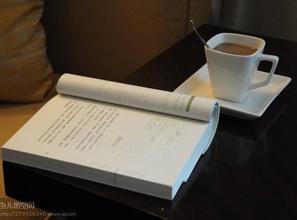A brief introduction to the description of flavor, taste and aroma characteristics of coffee beans in Agua Durai, Guatemala

Volcanoes once destroyed this originally prosperous capital in an instant, and all the prosperity and beauty were taken away overnight. After this transformation of the mountain city, more than 200 years of brilliance disappeared, Antigua no longer strutted. Antigua, now plain, is laboriously managed by the remaining Indians. These hard-working Indians became coffee producers, who not only discovered the rich and attractive aroma of Antigua coffee, but also brought it to people all over the world. Today Antigua Coffee enjoys a reputation for being the best coffee in the world and is considered by coffee connoisseurs to be the best and most distinctive coffee in the world.
Guatemala coffee has a strong aroma, even if you don't drink it, just smelling it is already a pleasure. Antigua coffee has a rich and velvety body, rich and lively aroma, and fine acidity. When the seductive aroma lingers on your tongue, it implies an indescribable mystery. On the first sip, you may feel bland, but as the coffee cools, you'll find it slightly sweet and be pleasantly surprised by its depth.
Antigua coffee is sought after by most coffee lovers because of its distinctive aroma. Because it is planted on the belly of volcanoes, it can retain its own characteristics more than Costa Rica, mainly because it has more geographical and climatic advantages than Costa Rica. Guatemala is located in the tropics, but due to its high altitude, the climate is mild and subtropical. Coffee trees bloom and bear fruit slower than coffee trees in other parts of the world under the influence of this climate. However, the mild climate combined with fertile soil creates an excellent environment for growing coffee.
These Mayan-run coffee industries once made Guatemala's economy prosperous and occupied a dominant position in the national economy. Unfortunately, however, the political situation in Guatemala is not conducive to these coffee growers. High output is usually a sign of overall economic prosperity in a country. However, coffee production in Guatemala has declined relatively, to only 700 kg/ha, compared with 900 kg/ha in El Salvador and a staggering 1700 kg/ha in Costa Rica. Guatemala's coffee export trade is controlled by private companies, but the National Coffee Council controls other sectors of the coffee industry.
Some of Guatemala's finest coffee is currently exported to Japan, where it sells for $3 to $4 a cup. In order to revitalize its coffee industry, Guatemala has set up a special coffee association and given maximum support and attention to these high-quality coffees. These efforts will soon bear fruit, and the real beneficiaries are not only coffee growers, but coffee lovers all over the world.
Antigua coffee is sought after by most coffee lovers because of its distinctive aroma. Because it is planted on the belly of volcanoes, it can retain its own characteristics more than Costa Rica, mainly because it has more geographical and climatic advantages than Costa Rica. Guatemala is located in the tropics, but due to its high altitude, the climate is mild and subtropical. Coffee trees bloom and bear fruit slower than coffee trees in other parts of the world under the influence of this climate. However, the mild climate combined with fertile soil creates an excellent environment for growing coffee.
These Mayan-run coffee industries once made Guatemala's economy prosperous and occupied a dominant position in the national economy. Unfortunately, however, the political situation in Guatemala is not conducive to these coffee growers. High output is usually a sign of overall economic prosperity in a country. However, coffee production in Guatemala has declined relatively, to only 700 kg/ha, compared with 900 kg/ha in El Salvador and a staggering 1700 kg/ha in Costa Rica. Guatemala's coffee export trade is controlled by private companies, but the National Coffee Council controls other sectors of the coffee industry.
Some of Guatemala's finest coffee is currently exported to Japan, where it sells for $3 to $4 a cup. In order to revitalize its coffee industry, Guatemala has set up a special coffee association and given maximum support and attention to these high-quality coffees. These efforts will soon bear fruit, and the real beneficiaries are not only coffee growers, but coffee lovers all over the world.
Guatemala Coffee Coffee Aristocrat
Guatemala Antigua coffee is not only smooth and hard, but also of good quality. It is a perfect combination of acid and sweet. Together with a trace of smoke, it emphasizes its deep depression and mystery.
Guatemala is located in the middle of North and South America, and its geographical position occupies an important position in Central America. Guatemala covers an area of approximately 108899 square kilometers. Land features can be divided into: volcanic plateau, lowland tropical forests, volcanic sandy coastal plains on the Pacific coast, and virgin land on the Caribbean coast. The Sierra Madre Mountains of Central America span east and west of Guatemala, covering an area of about 2/3 and containing 34 volcanoes. Rivers and lakes dot the landscape, while equatorial forests and plain jungles cover it. There are also undeveloped volcanic beaches on the Pacific and Caribbean coasts.
Coffee produced in Guatemala is one of the world's top coffees, because Guatemala is a volcanic terrain with high altitude, and these volcanoes are the most ideal places to grow coffee. The tasters prefer this blend of flavoured coffee with a spicy flavour to other varieties. The extra-hard coffee beans here are rare good coffee, it is full of particles, delicious, balanced acidity. Guatemala is also getting attention for its giant coffee beans
This is Guatemala Antigua, Agua volcanic region of the Dulce Sea region, this region produces 100% Arabica coffee beans, its branches are mainly bourbon, iron pickup, caduai, cadura, there are also a small number of yellow bourbon, rose summer and pacamara varieties, Antigua is a famous coffee producing area. Antigua coffee is produced at Hacienda Carmona, where the best quality coffee is EL Pulcal, which is not only of good quality, but also richer in flavor, taste and tobacco flavor than other coffees in Guatemala. Every 30 years or so, the area near Antigua Island will be attacked by a volcanic eruption, which provides more nitrogen to the already fertile land. Moreover, sufficient rainfall and sunshine make this place more suitable for growing coffee. Its coffee belt is distributed above 1500 meters, between 14 and 16 degrees north latitude. It is most easy to grow extremely hard beans, all of which are washed. 45% of them belong to fine grade. The proportion is quite high. Guatemala extremely hard beans are elegant, lively, acidic, clean and odor-free. The layers are distinct, and green apple acid fragrance, berry fruit fragrance, jasmine flower fragrance, orange peel fragrance, green pepper fragrance, fruit acid fragrance. Sweet, chocolate sweet, etc., even the end of the rhyme has a smoky taste, bitter taste and fragrance, good taste
A cup of Antigua coffee in Guatemala seems to let us see the mysterious Mayans who suddenly disappeared in ancient land, history brushed away their existence, history made them forever.
If the wrinkles of a person describe the road a person has traveled, the aroma of coffee remembers the origin of a cup of coffee: about its native terroir, harvest year, roasting and grinding method, that is, the journey of coffee life. Guatemala's fertile volcanic soil breeds a unique flavor of fine coffee beans: Antigua coffee. Antigua's charm lies in its balanced and refreshing fruit acid, rich spice flavor, unique smoky flavor, as if to tell us about the desolate history of Antigua in Guatemala.
The aroma of coffee liberates all forms, hearts and borders. Through coffee, the mood leaves the country at any time and lands in a strange country half a world away. Even if separated from the world, but also can share a mood. Antigua was the Spanish colonial capital in 1543. Although this emerald valley has been surrounded by active volcanoes on all sides, layers, deliberately rising and dangerous since ancient times, its vastness, breadth and fertility still lured the Spanish to establish their capital in the precarious cliff valley.
Important Notice :
前街咖啡 FrontStreet Coffee has moved to new addredd:
FrontStreet Coffee Address: 315,Donghua East Road,GuangZhou
Tel:020 38364473
- Prev

A brief introduction to the treatment method of Grinding degree and Baking degree of Diamond Mountain Coffee beans in Costa Rica
This extra-hard coffee bean suitable for medium and heavy roasting has a strong sour taste and charming aroma. Costa Rican SHG coffee is usually full of particles, clear flavor, bright acidity and ideal consistency. The strong flavor makes the tail rhyme reverberate in the throat for a long time, unforgettable. Tarasu, located in the south of the country's capital, SanJos, is a valued part of the country.
- Next

A brief introduction to the planting situation of coffee aristocratic Guatemalan coffee, variety type, market price
At present, some of the best quality coffee from Guatemala is exported to Japan, where each cup of coffee sells for $3 to $4. In order to revitalize its coffee industry, Guatemala has specially set up a special coffee association and gives maximum funding and attention to these high-quality coffee. These efforts will soon bear fruit, and the real beneficiaries are not only coffee growers, but also coffee growers.
Related
- Detailed explanation of Jadeite planting Land in Panamanian Jadeite Manor introduction to the grading system of Jadeite competitive bidding, Red bid, Green bid and Rose Summer
- Story of Coffee planting in Brenka region of Costa Rica Stonehenge Manor anaerobic heavy honey treatment of flavor mouth
- What's on the barrel of Blue Mountain Coffee beans?
- Can American coffee also pull flowers? How to use hot American style to pull out a good-looking pattern?
- Can you make a cold extract with coffee beans? What is the right proportion for cold-extracted coffee formula?
- Indonesian PWN Gold Mandrine Coffee Origin Features Flavor How to Chong? Mandolin coffee is American.
- A brief introduction to the flavor characteristics of Brazilian yellow bourbon coffee beans
- What is the effect of different water quality on the flavor of cold-extracted coffee? What kind of water is best for brewing coffee?
- Why do you think of Rose Summer whenever you mention Panamanian coffee?
- Introduction to the characteristics of authentic blue mountain coffee bean producing areas? What is the CIB Coffee Authority in Jamaica?

